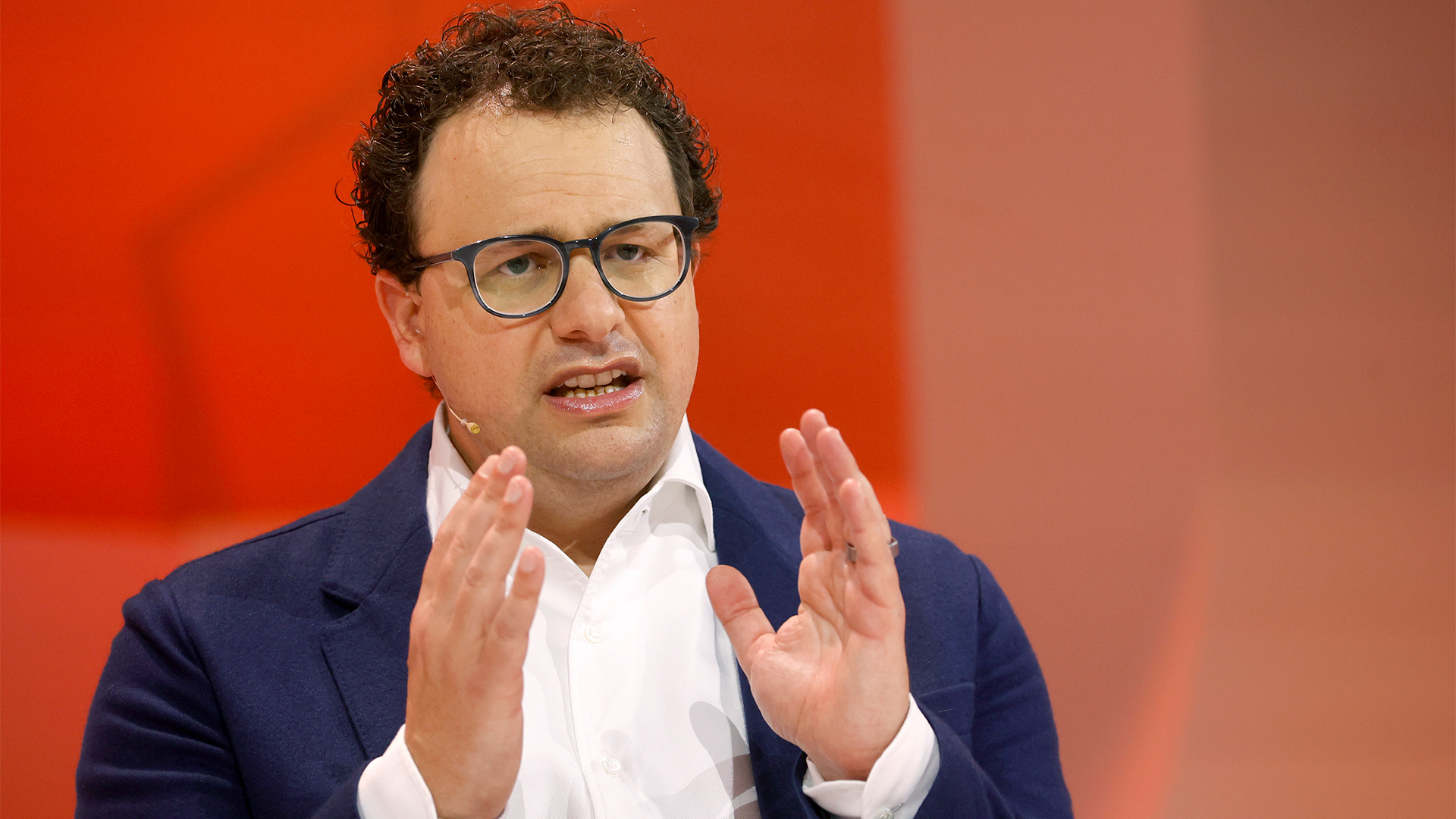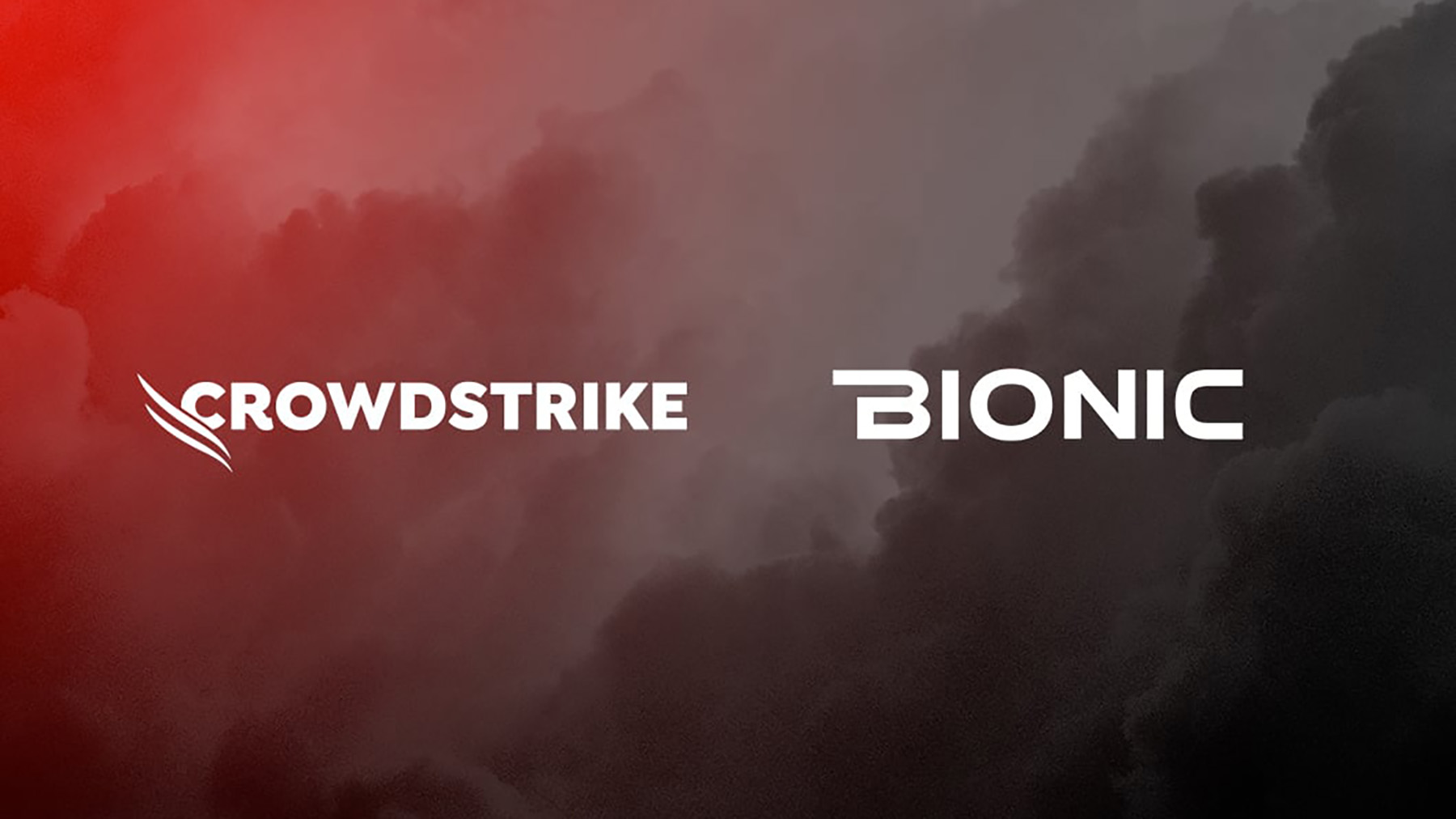Why today’s economic turmoil will build stronger startups tomorrow
Challenging economic conditions mean startups need to be more conscious of cash flow and burn rate than ever before


Sign up today and you will receive a free copy of our Future Focus 2025 report - the leading guidance on AI, cybersecurity and other IT challenges as per 700+ senior executives
You are now subscribed
Your newsletter sign-up was successful
The global startup landscape has changed markedly over the last 18 months, with deteriorating economic conditions prompting a dramatic dip in the volume of venture capital (VC) investment worldwide. In the first quarter of 2023, global venture capital funding stood at $76 billion, according to Crunchbase, marking a 53% decrease against the same period in 2022. This significant drop came amidst a backdrop of major funding deals, including a $10 billion investment in OpenAI, further underlining the decline witnessed in the industry.
Inflation, rising energy costs and the possibility of recession have, to put it lightly, caused VCs to adopt a more conservative approach. The pre-pandemic gravy train has very much ground to halt, and VCs are becoming increasingly strict in allocating funding, according to Megan Wood, chief product and strategy officer at DigitalOcean. This confluence of higher operating costs, inflation, and a more stringent fundraising landscape is, in turn, causing serious issues for many startups.

“Fundraising continues to be a struggle,” she says. “Expectations are much higher in terms of revenue, growth, path to profitability, and the diligence and underwriting process of VC investment is more difficult than it was five years ago. It's probably not more difficult than it was one year ago. But it just continues to stagnate. And that shows up in how founders are operating startups and SMBs – if it's harder to access capital, then they can't spend on growth in the same way they would always like to.”
Larger startups are feeling these changing conditions acutely, Wood notes. Some later-stage firms that raised funding at the peak of the cycle in 2021 with high valuations that find themselves in a fundraising scenario now can often end up in a precarious position.
“I think later-stage companies are probably the ones struggling the most right now,” she says. “They have very high valuations, and for them to raise money again they either have to have grown precipitously or they have to eat a valuation number that they may not be excited about. That might be a down round for their investors, which is a very difficult proposition.”
These are uncharted waters for startups
The current conditions in the global VC market mean startup founders are now contending with an environment that many have never witnessed before, Wood adds. These are very much uncharted waters for many founders, which is placing significant strain on firms and forcing them to make difficult choices that could harm their long-term growth.
Cashflow considerations are more critical than ever for a startup embarking on its growth journey. In years gone by, simple decisions such as allocating funds toward marketing are being re-examined in favour of diverting funds elsewhere in the business.
Sign up today and you will receive a free copy of our Future Focus 2025 report - the leading guidance on AI, cybersecurity and other IT challenges as per 700+ senior executives

Wood has been with DigitalOcean since April 2021, joining first as VP, business operations and analytics, before being promoted to chief strategy officer in June 2022, and promoted again to her current role a year later. As an experienced c-suite exec in charge of a diverse set of functions, Wood focuses on value creation to meet the company's growth goals.
“We just lived through a 13-year bull cycle in the VC market,” she says. “And so for a lot of founders this is a whole new world to them in terms of how you navigate it. We’re seeing a lot of people who haven't lived through a true recession before who are running companies, and there's a lot of different tactics involved.
“So you know, hard questions like ‘How much do I invest in performance marketing’, that may have been a staple of growth in the past, but it's a very costly channel of acquisition relative to things like SEO.”
Wood says considerations such as these are critical, given the levels of investment required and necessity of tangible growth and path to profitability as a staple requirement for future fundraising prospects.
“How much do I invest here during this time, knowing that growth is important?” she ponders. “It’s a case of knowing that if I don’t continue to grow, it will be hard to get fundraising in the future as well.”
Plugging critical talent and funding gaps
The importance of hiring right has long been a well-documented challenge for startups. With limited cash resources and a growth strategy that requires top talent, failing to hire correctly can be a critical hurdle many fail to pass.
Research from the UK’s Department of Education this year found that nearly half (46%) of startups across the country believe a lack of talent is a key challenge for them moving forward. This prompted over 80% of those surveyed to invest in upskilling for existing staff to accommodate for acute talent shortages.
These talent shortages, combined with potential cash flow issues, presents startups with a dire quandary; spend more and reduce your runway, or risk losing talent that is vital to your long-term success.
“There’s been a lot of layoffs in the last few years,” she says. “When you think about operating expenses of people, which are critical to your business going forward, it’s been incredibly challenging. How do you grow with less people?”

Many startup founders are also adopting novel approaches to ensuring their cash flow doesn’t impede growth in current conditions, Wood says.
“One thing I'm seeing is that a lot more startups are looking at prepayment, or minimum commits or things like that in their order taking process in order to de-risk their sales process and their investments,” she says.
These practices, Wood notes, do represent a way for startups to ensure that revenue streams are maintained and lessens the risk of reducing their long-term cash runway. “They’re focused on how they can get that cash assured up-front to fund their growth cycle,” she adds.
Fundamentally, however, this period represents an opportunity for startups to truly differentiate themselves from competitors. Having faith and confidence in the products and services they are developing is key, but many fall into the trap of underselling themselves.
“Focus on the product and services, you're only going to differentiate yourself with your customers,” she says. “There can be this temptation to lower prices and compete in that manner, but I think as a startup and founder you have to think about what's your differentiating factor.”
Focusing on sustainable traction
One particular tactic Wood has observed recently has been a prevailing focus among founders to focus on ‘sustainable traction’. This concept, based on the ‘rule of 40’, allows firms to support long-term growth while ensuring cash burn isn’t reaching critical levels.
The rule of 40 is a concept that the venture capital industry uses to measure whether a company is healthy or not, Wood says. This takes into account an organisation’s annual revenue, plus free cash flow as a percentage of revenue.
“As an example, if your revenue was growing 20% year over year, and you were producing in profit 20% of your revenue, you would meet the rule of 40,” she explains. “The idea here is that it's not just revenue growth, but it's profitability and positive unit economics that matter to whether a business is healthy when it's in this growth stage.”
RELATED RESOURCE

The state of restaurants in 2023
Discover how restaurants are adapting to an increasingly unstable economy and find out what the top trends are in 2023
DOWNLOAD NOW
Reflecting on the previous VC cycle, Wood notes there were a slew of companies that reached IPO several years ago, but are still struggling to reach profitability. Founders now are keen to avoid this pitfall and the “growth at all costs” mentality prevalent across the industry in years gone by. The current economic environment simply creates too much risk.
“I think that profitability is more of a hot topic with VCs than it used to be. And it doesn't mean that early stage companies have to be profitable, but it has to be something where you're building a path to profitability. And that's really important.”
Short-term pain and long-term success
Weathering the current economic climate will remain challenging for founders across the globe, Wood says, and there will likely be more casualties along the way. Data from Carta shows that Q2 of 2023 saw the highest number of startup closures ever recorded, highlighting the current environment is precarious.

However, long-term, this predicament could create a more vibrant startup landscape, allowing serious players and those focusing on sustainable growth to differentiate themselves from competitors and cut the wheat from the chaff.
“I think it’s good for us in the long run that we’re making sure we’re building scalable and sustainable growth startups,” she says. “While there may be a lot of startups shutting down right now, I think long term we'll see that this was an innovation cycle and that so many new startups are born out of it. So I'm bullish coming out of that.”

Ross Kelly is ITPro's News & Analysis Editor, responsible for leading the brand's news output and in-depth reporting on the latest stories from across the business technology landscape. Ross was previously a Staff Writer, during which time he developed a keen interest in cyber security, business leadership, and emerging technologies.
He graduated from Edinburgh Napier University in 2016 with a BA (Hons) in Journalism, and joined ITPro in 2022 after four years working in technology conference research.
For news pitches, you can contact Ross at ross.kelly@futurenet.com, or on Twitter and LinkedIn.
-
 ITPro Best of Show NAB 2026 awards now open for entries
ITPro Best of Show NAB 2026 awards now open for entriesThe awards are a fantastic opportunity for companies to stand out at one of the industry's most attended shows
-
 Mistral CEO Arthur Mensch thinks 50% of SaaS solutions could be supplanted by AI
Mistral CEO Arthur Mensch thinks 50% of SaaS solutions could be supplanted by AINews Mensch’s comments come amidst rising concerns about the impact of AI on traditional software
-
 Microsoft and Nvidia are teaming up again to support UK startups
Microsoft and Nvidia are teaming up again to support UK startupsNews Agentic Launchpad will offer participants AI expertise, training and networking, and marketing support
-
 ‘The AI boom has fueled a wave of overfunded startups that look healthy on the surface’: Cash is flowing into AI startups, but investors have warned of the rise of ‘zombiecorns’ as companies struggle with revenue growth
‘The AI boom has fueled a wave of overfunded startups that look healthy on the surface’: Cash is flowing into AI startups, but investors have warned of the rise of ‘zombiecorns’ as companies struggle with revenue growthNews Investors are growing concerned about the rise of 'zombiecorns' in the AI startup space
-
 Why the UK keeps losing promising startups
Why the UK keeps losing promising startupsNews The House of Lords Communications and Digital Committee has warned the UK risks losing top startups due to too much red tape.
-
 This startup wants to simplify AI adoption through a single “orchestration” platform – and it includes access to popular models from Meta, OpenAI, and Anthropic
This startup wants to simplify AI adoption through a single “orchestration” platform – and it includes access to popular models from Meta, OpenAI, and AnthropicNews Nexos.ai wants to speed things up for enterprises struggling with AI adoption
-
 LGBTQ+ founders face fierce challenges raising capital, but what’s being done about it?
LGBTQ+ founders face fierce challenges raising capital, but what’s being done about it?In-depth Despite great strides being made to improve diversity throughout the tech industry, LGBTQ+ startup founders still face roadblocks
-
 CrowdStrike to acquire application security management startup Bionic
CrowdStrike to acquire application security management startup BionicNews Bionic ASPM will be available as an independent offering and as part of CrowdStrike’s Falcon Cloud Security
-
 The best alternatives to VC funding for startup businesses
The best alternatives to VC funding for startup businessesFeature VC funding has traditionally been a source of money for tech startups, but what other options are available?